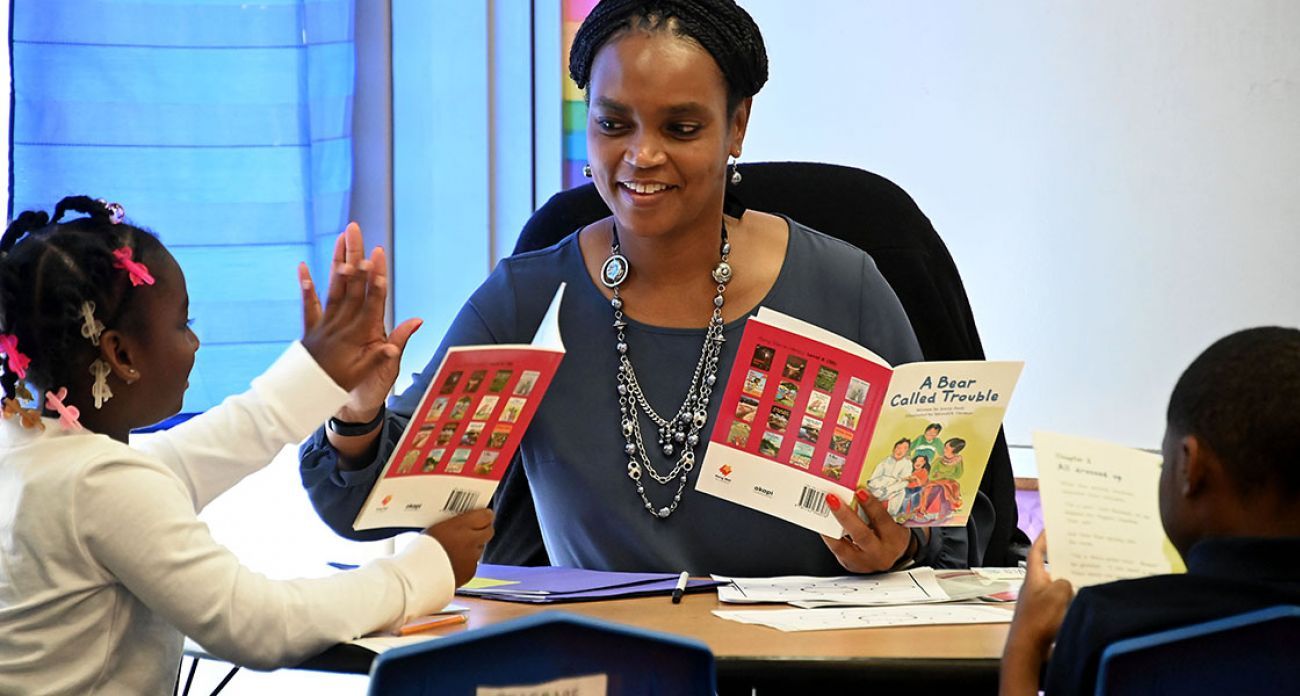Opinion | MSU research shows culture wars eroding trust in Michigan teachers

Americans have traditionally had great faith in their local teachers. As recently as 2013, polls found close to 90 percent of Americans expressed trust in teachers. Even as trust has eroded in other public institutions, Americans have generally maintained that their local schools were doing quite well.
Yet this faith is being challenged as schools and teachers become embroiled in national ideological debates about what and how we teach the next generation about race and racism in the U.S. As recently as October 2020, most Americans (81 percent) agreed teachers SHOULD discuss issues like the history of racism in the United States. But as national debates have heated up, opinions are diverging, and teachers appear to be bearing the brunt of national ire.
What has changed since 2020? We suspect that national media coverage and political conversations about critical race theory (CRT) are fueling the decline in trust of teachers.
Since spring of 2021, CRT has shifted from a theoretical framework for understanding systemic racism discussed in academic circles to a mainstream, K-12 educational issue – even though many school districts clearly state they do not teach CRT. Forty-two states, including Michigan, have introduced legislative bans or similar restrictions on CRT.
Despite this prevalence, CRT debates tend to be fueled by misinformation, making discussions about the topic even harder. Our team wanted to know what people in Michigan were hearing and how it was shaping their opinions. We invited participants to share their views on the State of the State Survey (SOSS) run by Michigan State University’s Institution for Public Policy and Social Research. Over three-quarters (79 percent) of Michiganders reported hearing at least one misinformation statement about CRT, like "CRT teaches kids to be racist” or “CRT teaches children to hate the United States.” Nearly half (42 percent) had heard all eight false statements we tested.
Misinformation seems to be fueling declining trust in our local teachers, especially when it comes to addressing issues related to race and racism. Our research in Michigan found only about half (53 percent) of all survey participants agreed that “I trust my local teachers to discuss race and racism with my children this coming year.” Slightly more (67 percent) Michiganders trust teachers to supplement their curriculum while under two-thirds (62 percent) trust their local teachers to discuss national events related to race.
While race and racism have always been potentially sensitive topics in the classroom, it seems the increased attention, deep national partisan divide and misinformation have led community members and parents to question if their own local teachers can be trusted to address these issues with children.
Declining trust poses a significant concern because it can result in policies that micromanage and politicize teachers’ work, increasing pressure on teachers. This comes at a time when teachers nationally are already less satisfied with their jobs and schools in Michigan are coping with significant staffing challenges.
The additional pressure might contribute to more teachers leaving the profession. This lack of trust could also lead teachers to shy away from these topics, understandably avoiding confrontation with parents and community members. But this would come at a cost to students, who need to learn about race, racism, and the ways racism continues to impact our country.
Instead of avoiding the topic, we hope educators intentionally build trust with parents when teaching about race, racism, and other politicized hot topics. For teachers, this may look like directly communicating with parents about what they are teaching related to race and racism, how they are teaching it, and what their goal is. Many educators have already established lines of communication – newsletters or learning management systems – so now is the time to invite parents into this conversation, not shy away from it.
Nationally, it seems teachers are maintaining lines of communication, with three-quarters of parents indicating they feel informed about the curriculum in their children’s classrooms.
Administrators can also provide much-needed support for teachers by incorporating research-based strategies for best practices when discussing controversial topics in the classroom to offer professional development sessions. Administrators could also provide support for teachers if there is pushback when they bring up issues related to race and racism.
Perhaps the best way to build trust in the community is for teachers to include parents and community members in the classroom. This could mean learning together, with school districts scheduling educational speakers and programs about race and racism for the adults in the community – both parents and teachers. There may also be ways for teachers to co-construct lessons with parents that cover controversial topics, so that parents understand how these topics are actually being discussed in the classroom.
Trusting relationships are built by all parties; parents need to approach their concerns about curriculum from a place of collaboration and curiosity first, rather than assuming ill-intent. Talk with teachers respectfully, share your concerns, and work together to find ways that support learning about this critically important topic. As we approach the end of the school year, recognizing the difficulties teachers are balancing and showing appreciation through trusting, professional relationships is important.
Finally, despite the national rhetoric, finding common ground may be easier than one might expect. Our survey results show the majority (79 percent) of Michiganders thought “equity and fairness” were important values that should be taught in school. So perhaps starting with these broader values will help everyone see that teachers and schools are working towards educational goals shared broadly by the public.
See what new members are saying about why they donated to Bridge Michigan:
- “In order for this information to be accurate and unbiased it must be underwritten by its readers, not by special interests.” - Larry S.
- “Not many other media sources report on the topics Bridge does.” - Susan B.
- “Your journalism is outstanding and rare these days.” - Mark S.
If you want to ensure the future of nonpartisan, nonprofit Michigan journalism, please become a member today. You, too, will be asked why you donated and maybe we'll feature your quote next time!




